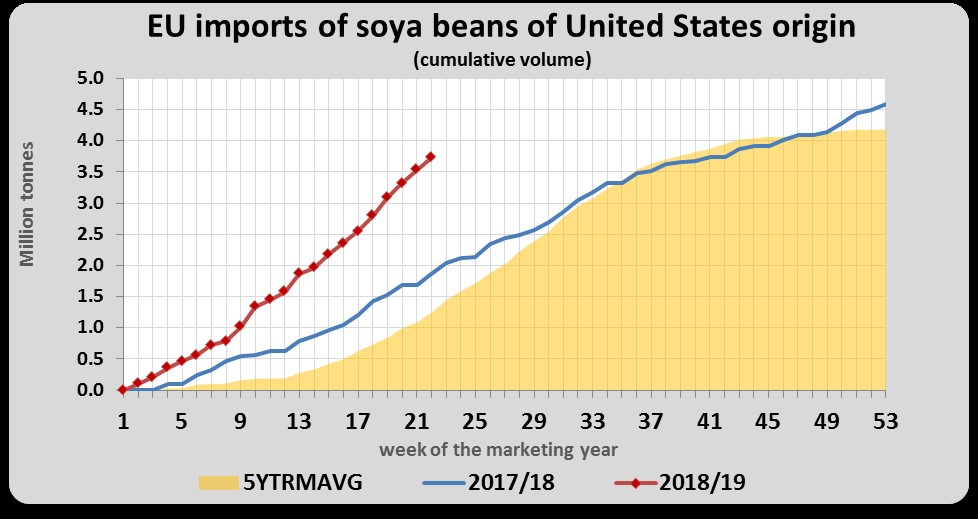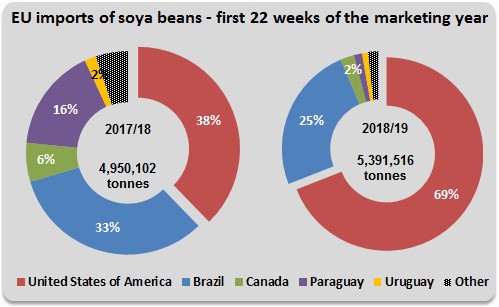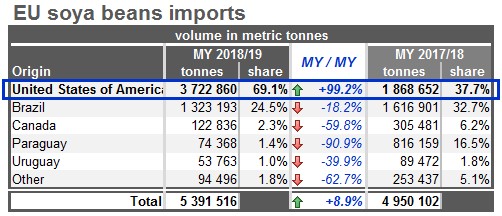United States is Europe's number one soya beans supplier with EU imports up by 100% *
The U.S. has become Europe’s main supplier of soya beans, reaching a 69% share compared to 38% in the same period last year (July to end November 2017). During this period last year, the EU had imported 1,868,652 tonnes of U.S. soya beans while our current imports are now peaking at 3,722,860 tonnes. This also means that the EU is now by far the top destination of US soya beans exports (27%), followed by Argentina and Mexico (each accounting for 10%.
Following the EU-U.S. Joint Statement by Presidents Juncker and Trump on 25 July, the European Commission is regularly publishing figures on EU imports of soya beans. The two sides have agreed to increase trade in several areas and products, notably soya beans.
Commissioner for Agriculture, Phil Hogan, said: “Due to a variety of other market and climatic factors, European protein crop production is not sufficient to cover the growing demand. When it comes to soya, EU self-sufficiency amounts to only 5% of our needs. So while we look at developing our growth potential for EU-grown plant proteins, we will continue to import soya beans from our partners, including the United States who is now our main supplier.”
Today’s report shows that:
- Compared to the first 22 weeks of the 2017 marketing year (July to end-November) EU imports of soya beans from the United States are up by 100% at 3,722,860 tonnes;
- In terms of the EU’s total imports of soya beans, the U.S. share is now at 69%, compared to 38% in in the same period last year. This puts the U.S. well ahead of Brazil (25%), the EU’s second main supplier, followed by Canada (2%), Paraguay (1%) and Uruguay (1%);
Background
The EU imports about 14 million tonnes of soya beans per year as a source of protein to feed our animals, including chicken, pigs and cattle, as well as for milk production. Soya beans from the US happen to be a very attractive feed option for European importers and users thanks to their competitive prices.
The data included in the report published today on soya beans, comes from the Crops Market Observatory which the European Commission launched in July 2017 to share market data and short-term analysis to ensure more transparency.
For more information
Annex



* Updated on 30/11/18 at 23:25